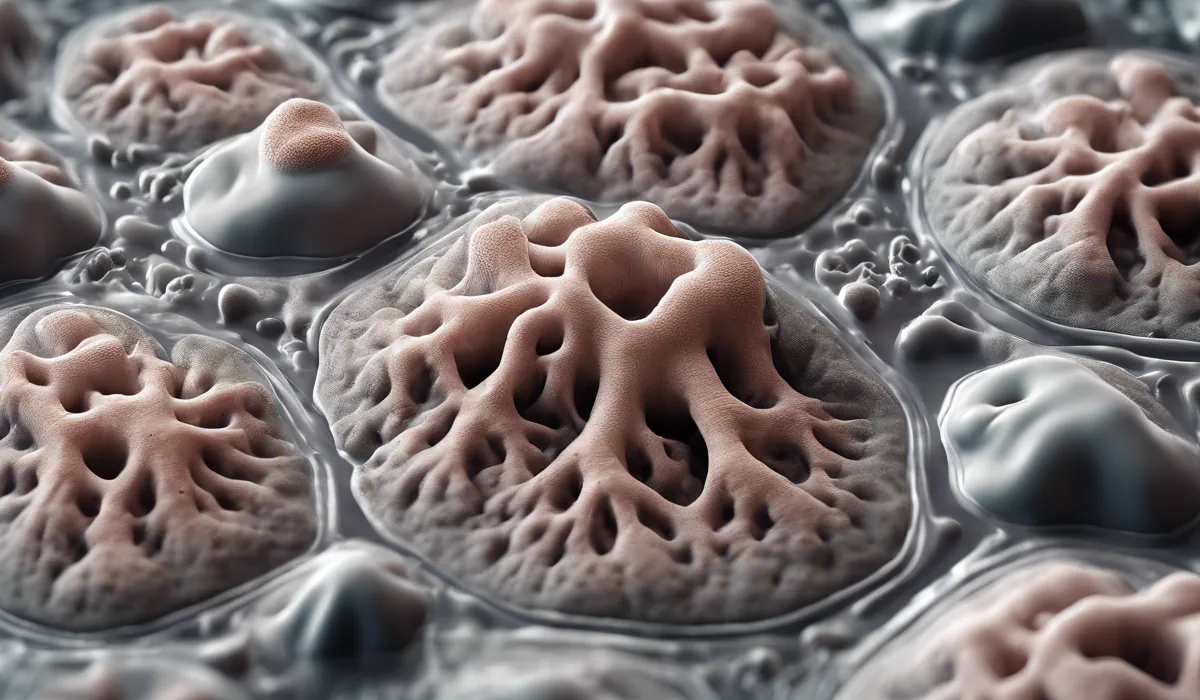Yes, mold exposure can cause neurological problems. Toxic molds produce mycotoxins that may lead to symptoms such as headaches, dizziness, and memory loss. Chronic exposure has been linked to more serious neurological issues.
Connection Between Mold Exposure and Neurological Issues

What is Mold?
Mold is a type of fungus that can grow indoors and outdoors. In our homes, we often find molds like Cladosporium, Penicillium, Aspergillus, and the notorious Stachybotrys chartarum, also known as black mold.
These molds thrive in damp, warm, and humid conditions. When they grow, they can cause problems for our health, especially when they’re inside our homes.
Mycotoxins and Their Dangers
Some molds make harmful chemicals called mycotoxins. These mycotoxins can be released into the air and cause health issues if we breathe them in, eat them with food, or if they touch our skin.
These toxins are a big reason why mold can be bad for our health.
How We Can Come into Contact with Mold?
We can come into contact with mold through breathing it in, eating it, or by it touching our skin.
Breathing in mold spores is the most common way people are exposed to mold in their homes or at work.
Mold’s Impact on Our Nervous System
Mold and mycotoxins can affect both the central nervous system, which includes our brain and spinal cord, and the peripheral nervous system, which is the network of nerves throughout our body.
This can lead to different health problems, like feeling dizzy or having trouble remembering things.
Evidence of Mold’s Effects on Neurological Health
Studies have shown that exposure to mold can be linked to neurological symptoms and conditions.
People who have been around mold for a long time may have more serious problems with their nervous system.
Neurological Symptoms from Mold Exposure
After being around mold, some people might get headaches, feel dizzy, have numbness in parts of their body, or find it hard to think clearly. These symptoms can be signs that mold is affecting their nervous system.
Diagnosis and Treatment of Mold-Related Neurological Problems

Identifying Mold-Related Neurological Issues
Finding out if someone’s neurological problems are because of mold can be tricky. Doctors have to look at the person’s medical history and where they live or work to figure it out.
Assessing Environmental and Medical Histories
When doctors think mold might be causing health problems, they look into the person’s medical history and check their home or workplace to see if there’s mold there.
Testing for Mold Exposure
To test for mold exposure, doctors might ask for blood tests, look at pictures of the inside of the body, like MRIs, or give special tests that check how well the brain is working. These tests help doctors find out if mold is the cause of the health problems.
Environmental Experts and Mold Assessment
Professionals who know a lot about the environment can help find out if there’s mold in a home or workplace. They look for mold and test to see if the air quality is safe.
Treating Mold Exposure
If someone has been exposed to mold, doctors might give them medicine to help with their symptoms. They might also suggest ways to detox, or get rid of, the toxins from their body.
Recovering from Mold Exposure
People who have been around mold might need to change things in their life, like how they eat or clean their home, to help their body heal and to keep from being around mold again.
Prevention and Mitigation of Mold Growth to Protect Neurological Health

Keeping Mold Away by Controlling Moisture
Mold likes places that are wet, so keeping our homes dry is important to stop mold from growing. Fixing leaks and using fans in bathrooms and kitchens can help keep things dry.
Steps to Prevent Mold in Our Spaces
To keep mold out of our homes and workspaces, we need to make sure there’s enough fresh air coming in, control the humidity, and fix any water problems right away. Doing these things can stop mold from growing.
Regular Building Check-Ups
It’s a good idea to check our homes and places of work often to make sure they’re in good shape and there’s no mold growing. This helps us catch any mold early before it becomes a bigger problem.
Cleaning Mold Safely
If we see mold, we need to clean it up carefully. Sometimes, we can clean up small amounts of mold ourselves, but if there’s a lot of mold, it’s best to get help from people who know how to remove it safely.
Mold Laws and Keeping Buildings Safe
There are laws and rules about mold in houses and other buildings. These laws help make sure that landlords and others keep buildings safe and free from mold.
Advice for Staying Safe from Mold
Health experts give us advice on how to avoid mold and what to do if we find it. Following their recommendations can help us stay healthy and keep our brains working well.
FAQs About Mold and Neurological Problems
Can exposure to mold cause headaches and dizziness?
Yes, exposure to toxic molds can cause symptoms such as headaches and dizziness due to the mycotoxins they produce.
Is memory loss a symptom of mold exposure?
Yes, memory loss can be a symptom of mold exposure, as certain mycotoxins may affect cognitive functions.
Can chronic mold exposure lead to serious neurological issues?
Chronic exposure to mold has been linked to more serious neurological issues, potentially due to long-term exposure to mycotoxins.
What are mycotoxins and how do they affect the brain?
Mycotoxins are toxic substances produced by certain molds, and they can affect the brain by disrupting neurological function and potentially causing symptoms or long-term damage.
Are all molds dangerous to neurological health?
Not all molds are dangerous, but certain types, such as Stachybotrys chartarum (black mold), produce mycotoxins that can be harmful to neurological health.
Final Thoughts
Exposure to toxic molds and their mycotoxins has been proven to adversely affect neurological health. Symptoms due to such exposure range from headaches and dizziness to memory loss.
With chronic exposure, individuals may face an increased risk of severe neurological conditions, highlighting the importance of addressing mold issues promptly to safeguard health.
